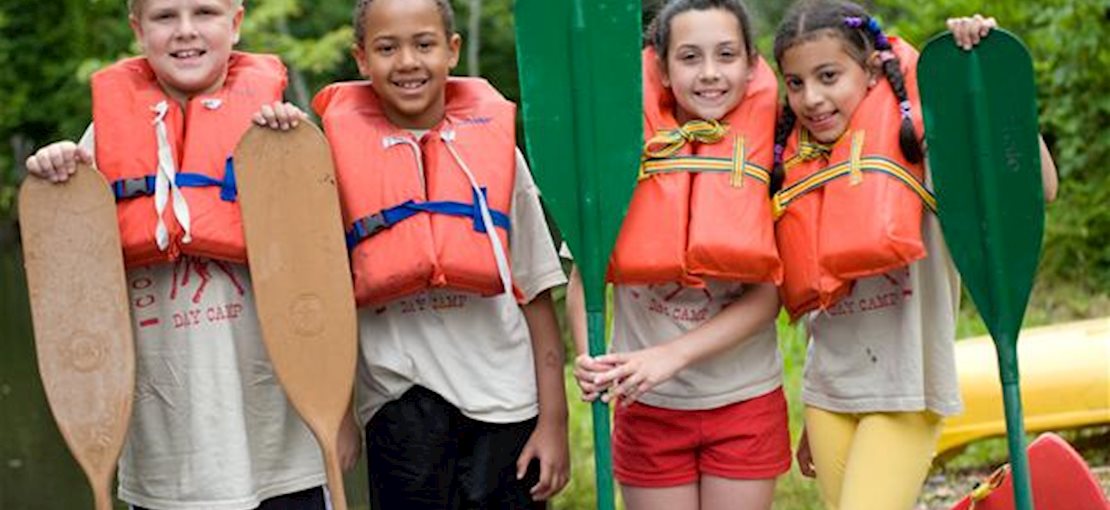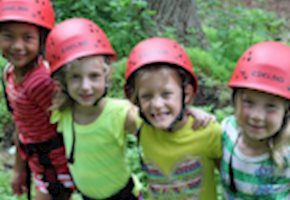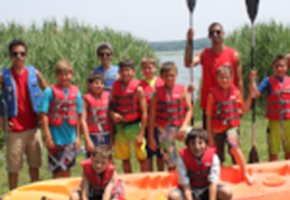When searching for a camp, there are many factors to consider. One thing parents need to think about is what type of camp they want to send their child to. Here are the key differences between some of the different types of summer camps.
DAY OR RESIDENT CAMPS
Day Camps: Day camp is often a child’s first step toward independence and they are designed for children three-years-old or older. Children enjoy activities and go home at the end of the day. Some day camps also offer half days or 2-3 days a week programs. You should be sure that your child is comfortable separating from you for segments of time and enjoys playing with other children.
Resident Camps: Children can go to resident camp beginning at the age of seven. Children enjoy days filled with activities and also sleep over at camp for an extended period of time. If you are considering sleepaway camp, make sure your child has had successful overnights away from home with friends and relatives. You also want to make sure your child is mature enough to go away for an extended period of time and that he or she can do certain things independently like showering, getting dressed and brushing their teeth.
FULL SESSION OR SHORT SESSION SLEEPAWAY CAMPS
Full Session Camps: The full summer experience gives campers a longer stretch of time to adjust to camp, become ingrained in the camp community and have more time to connect with the camp’s traditions. It also gives children ample time to deepen friendships and have more time to develop skills learned at camp.
Short Session Camps (2, 3 or 4 week program): A short session camp offers camp for a few weeks. Campers in each session arrive together and leave together, making it easy to form friendships. Short session camps are a great option if you plan on continuing to send your child to camp for short sessions in future summers.
Introductory weeks at full session camps: Many resident camps offer two week or four week introductory sessions for first time campers and for the youngest age groups. This can be a good way for first time campers and young campers to get accustomed to camp life. Sending your child to a camp that offers these shorter sessions for the first year or for young campers allows your child to stay at the same camp for a longer period in following years if he or she would like.
COED, SINGLE SEX OR BROTHER/SISTER CAMPS
Coed Camps: At coed resident camps, the girls and boys have many or all shared facilities, including the waterfront, dining hall, and sports fields. Coed camps have a clear separation of boys’ bunks and girls’ bunks on camp. Each coed camp is different: some camps have some coed daily activities, other coed camps keep daily activities separate, but the boys and girls come together for meals, some evening activities, canteen, and special events like carnival, color war and off camp trips.
Single Sex Camps: Single sex camps don’t have campers of the other sex at camp. Many single sex camps focus on certain activities, whether it’s sports or the arts. This is because camps are able to center their program on the interests of just one sex. Although campers spend their daily activities, evening activities and special events with children of the same sex, single sex camps often have regular socials with nearby camps of the opposite sex.
Courtesy of American Camp Association
http://www.aca-nynj.org/
Brother/Sister Camps: Brother/Sister camps are two camps on the same property or close by to each other. They usually have the same owners but each camp has its own traditions while also sharing traditions between the two camps. Each camp has their own facilities including different waterfronts and dining halls. Brother/Sister camps allow girls and boys to participate in separate activities during the day just like a single sex camp or some coed camps, but for many Brother/Sister camps, girls and boys come together for meals, special events and some evening activities.
ELECTIVE OR TRADITIONAL PROGRAM
Elective Program: Campers work with their counselors to select the activities they want to participate in each day or week.
Traditional Program: Camp activities are set for the campers, with the exception of elective activities for children depending on their age.
TRADITIONAL OR SPECIALTY CAMPS
Traditional Camps: Traditional camps offers children a varied camp experience with many different camp activities such as swimming, archery, ropes course, arts and crafts, soccer, water skiing and drama, among many others. For parents looking to provide their children with a social and developmental experience, such as learning life skills, developing independence, learning responsibility and connecting with people, the traditional camp will provide these experiences. Campers at traditional camps also become part of a community and will enjoy traditional summer camp activities such as Olympics, Color War, Bunk Activity Days, Community Service Projects, Carnival, and trips off camp.
Specialty Camps: Specialty camps focus on a specific camp activity or related camp activities for a given period of time. There are many different types of specialty camps available for children for just about every interest such as horseback riding, tennis, drama, gymnastics or soccer. If your child has an interest in a specialized activity, there is bound to be a camp geared towards that interest.
SPECIAL NEEDS OR MAINSTREAM CAMPS
Special Needs Camps: A physical, medical or mental disability is not a roadblock for a camp experience. There are special needs camps that specialize in serving certain disabilities.
Mainstream Camps: Many camps integrate special-needs campers into the total camp population. Parents should be sure to have honest conversations with the camp director about their child’s needs and if the camp is able to accommodate them.
The American Camp Association, NY and NJ is a not for profit organization dedicated to enhancing the quality of the summer camp experience. The American Camp Association, NY and NJ offers families looking for a camp free, one-on-one advice in finding the right summer camp experience for their child. Contact 212.391.5208 or visit searchforacamp.org for help in your summer camp search.






Add A Comment
Thank you for your comment.
Sorry! There was a problem with your comment submission. Please try again.
Comment
Allowed HTML: <b>, <i>, <u>, <a>
Comments
Thank you for your comment.
Sorry! There was a problem with your comment submission. Please try again.
Thank you for your comment.
Sorry! There was a problem with your comment submission. Please try again.